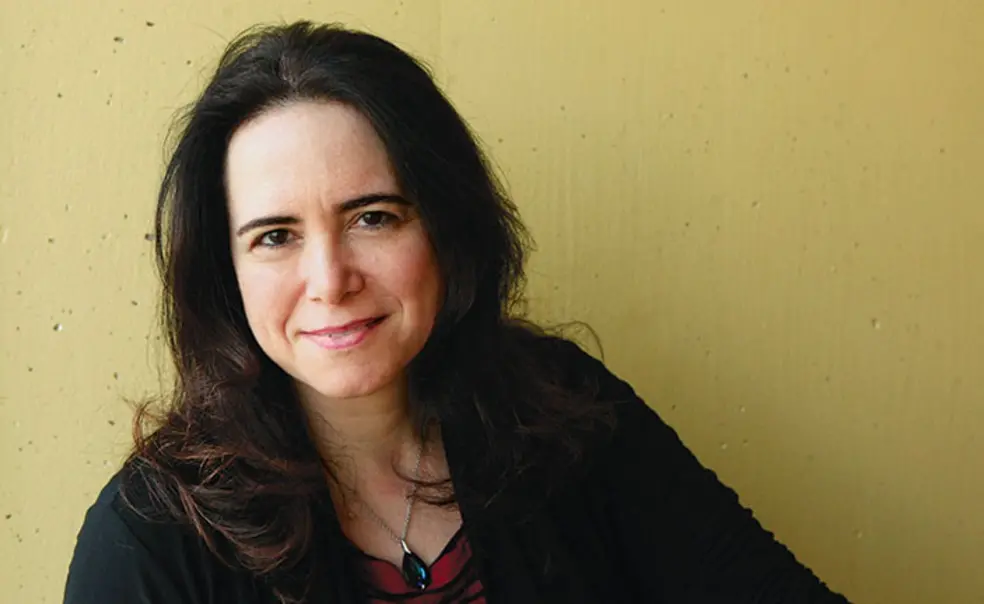Q&A: Christina Lazaridi ’92
Words on Film: Thinking like a poet helps a screenwriter find the emotional core of a script
What pulls an audience into a story and keeps people listening? Christina Lazaridi ’92, an Oscar-nominated writer who teaches screenwriting in the creative writing program, has been wrestling with that question for more than two decades. PAW spoke with the writer about the film business, how poetry relates to screenwriting, and what drives her work.
What propelled you into the frenetic world of film?
In between my undergraduate and graduate programs, I took a year off and went to Greece, where I am from. I worked as an assistant to my mother, a prominent theater-production designer. She worked me hard. After putting in my third all-nighter, I said, “This is crazy.” She replied, “If you want to survive in show business, this is going to be your life. So make a choice.” She was right. What I say to people is that if you really feel like this is the only thing you can do in your life, you should do it. You really have to feel that this is it for you.
Did you have a breakthrough moment in your career?
Yes. After writing documentary scripts, a colleague asked me to write fiction — a screenplay for a short film, One Day Crossing, about a Jewish girl trying to protect her family during World War II. It was nominated for an Academy Award in 2001. Everything opened up for me after that.
Now, with the Internet, there is more content and more competition. But there are also a lot more avenues for getting your work out there and getting noticed and finding an audience.
When you entered graduate school, you had to choose between screenwriting and poetry. Do you still find poetry is helpful to you?
Lazaridi and a Princeton neuroscientist are studying how audiences process information.
I use poetry when I teach. For me, in terms of connecting different writing forms and modes of expression, poetry is the closest to film. In poetry, you are trying to communicate emotion. You are working with rhythm in a very circumscribed space and with subtext. This is markedly similar to what you do in screenwriting, where you have a very defined space to work with in terms of a rigorous time limit, and you want to create the conditions for an emotional rapport with the audience by using different rhythms.
Talk about your project with Uri Hasson, a professor at the Princeton Neuroscience Institute.
We are studying how an audience processes pieces of information and remembers them to create a full internal narrative. This connects directly to the creative side of things, from a screenwriter’s point of view, in how you convey information to the audience so that they remember it. You reveal to them what you want them to know, and they create the narrative through the clues you give them. The neuroscientists will study audience reactions through fMRI [functional magnetic resonance imaging] data. I am incredibly curious to see what we learn.












No responses yet